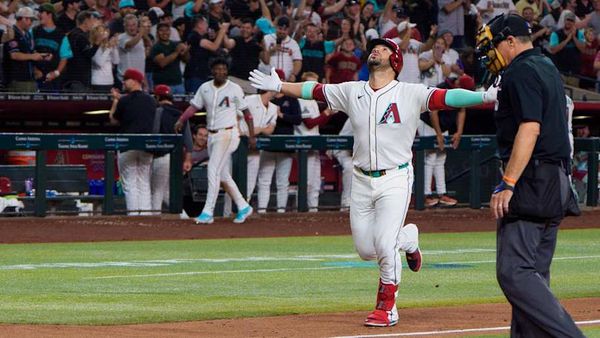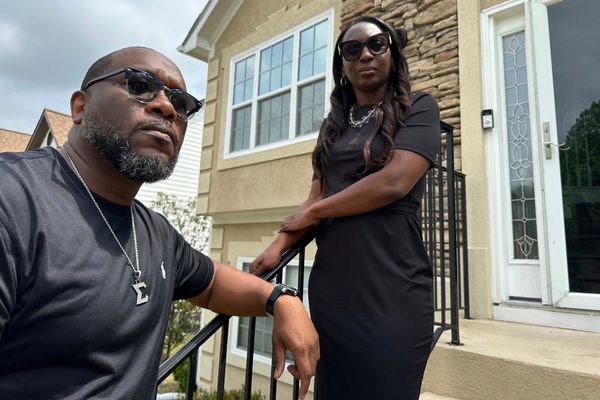The combination of COVID fears and the appeal of so-called “convenience voting” will see record low numbers of South Australians attend polling booths on Saturday.
As a consequence, it is a safe bet we won’t know on election night whether Premier Steven Marshall’s Liberals are returned to office or Labor’s Peter Malinauskas manages to reassert Labor’s grip on SA politics.
Over the past 50 years, SA Labor has governed about 70% of the time. Essentially, Labor’s superior marginal seat campaign strategy combined with strong leadership – aided by the Liberals’ perpetual disunity – explains this success.
The Marshall government is in minority, and opinion suggests momentum is with Labor. But neither party would feel confident that majority government is likely.
Read more: Labor maintains big federal Newspoll lead and is likely to win in South Australia
Marshall’s key achievement now lost
Significantly, at least until the past year, Marshall managed to unite his party room. It was a vital reason behind his victory in 2018 as finally, after four electoral defeats, the Liberals appeared ready to govern.
However, during 2021, three Liberals found themselves on the crossbench, either through choice or expulsion. Narungga MP Fraser Ellis found the heat of ICAC investigations of alleged electoral allowance fraud was not popular with the premier, while Kavel MP Dan Cregan was frustrated with Marshall’s lack of interest in his electorate’s needs.
Quite a saga enveloped Sam Duluk whose “drunken pest” behaviour at a 2020 Christmas party resulted in him being charged with assaulting SA Best MP Connie Bonaros. Acquitted of the charge, he is running a vigorous campaign in Waite against his old party and a prominent independent candidate.
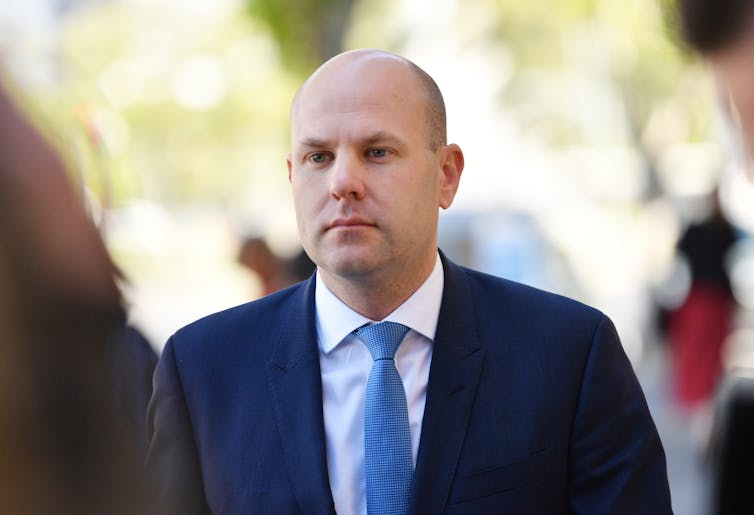
In minority for much of 2021, the government suffered frequent embarrassment. The most notable was when Labor, with crossbench support, voted to oust Speaker Josh Teague in favour of Cregan.
All the independent MPs are contesting the 2022 poll and, if the result is a hung parliament, the question will be which way they and Troy Bell lean.
Marshall pegs his hopes on the economy and COVID management
Marshall’s campaign rests squarely on economic policy and his government’s handling of the pandemic. A year ago, the state’s growth rate outstripped the nation’s, a rarity for SA. This, combined with the lowest unemployment rate in 40 years and unprecedented nett migration to SA, now feature in Marshall’s pitch to voters.
Moreover, there is a certain dazzling element accompanying his frequent announcements relating to the space industry development on the old Royal Adelaide Hospital site in the heart of Adelaide.
The government’s management of COVID was, until borders opened in early November, set to follow recent state election results and render great electoral benefit.
However, within a few months this diminished, as opinion divided over whether or not the government opened the borders too soon last November. Throughout December and January, COVID-related hospitalisations and deaths increased, unnerving large sections of the community.
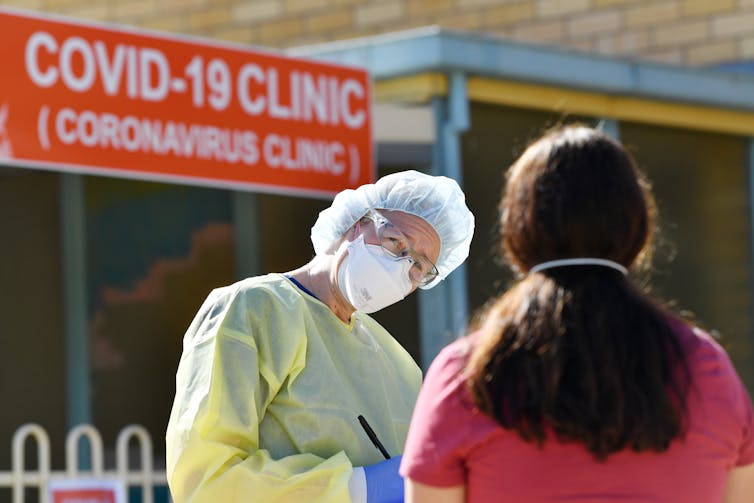
Hospitalisation rates are now in steady decline. However, it seems many voters may be unforgiving, given Marshall rejected the state’s chief medical officer’s recommendation to close borders again once the outbreak in December looked to be unmanageable.
On the other hand, Marshall knew the Liberals’ core constituency – small businesses and in particular the hospitality sector – were desperate for the state to stay open.
Marshall is at pains to convince voters that ex-union leader Malinauskas has no economic credibility. The government hopes voters will focus squarely on matters of economic credibility, and to that end employs the classic campaign clarion call, “where’s the money coming from?”
This is a fair question, given Labor’s health spending approximates $1 billion and overall spending promises, as Malinauskas conceded during the leaders’ debate, have reached $2.7 billion.
Nevertheless, given we now live in a COVID-inspired era of big government and huge debt, it is doubtful this line of attack resonates as it may have in the past. Many voters simply want things fixed, especially in the health system.
Perhaps aware of this conundrum, the Liberal campaign seeks to remind voters of the former Labor government’s cuts to the health system, notably the closure of the popular Repatriation Hospital.
In a nutshell, the Liberals’ attack efforts appear rather lame compared with Labor’s sharper negative focus, as is evident in crude, but arguably devastating Labor messages.
On the question of supporting renewable energy, there is broad consensus – likewise on the matter of supporting a hydrogen hub in SA. However, the means to that end reflect a classic Liberal–Labor ideological divide. Labor proposes a state-owned green hydrogen venture next to Whyalla’s steelworks, while the Liberals prefer private sector investment.
Labor’s proposal is slated to cost nearly $600 million, with Marshall arguing this “should send a shiver up the spine of every single South Australian”.
Campaign vibe
Malinauskas orchestrated a profile coup by making his body the talking point.
With his young daughter Eliza in his arms, Malinauskas announced plans to redevelop the Adelaide Aquatic Centre in North Adelaide Labor wins the March election.
Cleverly designed to draw in disengaged voters, the Malinauskas pool pictures featured on the Sunday Mail’s front page and in evening bulletins, and are now frequently referred to.
Political science research argues that good looks matter in election campaigning, and there is no doubt Malinauskas’s profile improved among voters who, until that point, would struggle to name the opposition leader.
Read more: How a candidate's looks may be swinging your vote (without you even realising it)
In response, the premier quipped: “Right, that’s it, no more carbs.” Such are the lofty heights, at times, of this election’s campaign conversation.
The electoral equation
Momentum appears to be with Labor. A recent Newspoll indicated Labor’s primary vote is at 39 compared with the Liberals on 37, while two-party preferences favour Labor 53-47. Notably, Malinauskas is ahead as preferred premier. This poll combined with the campaign vibe points to it being difficult to see the Liberals taking seats off Labor.
To form a majority government, Labor requires a net gain of four seats, assuming it wins Florey. If Labor or ex-Labor independent Francis Bedford wins Newland, and Labor wins the ultra-marginal Liberal-held seats of Adelaide, King and Elder, they will be able to form majority government.
If none of this happens, it looks very difficult, requiring a swing of at least 6%.
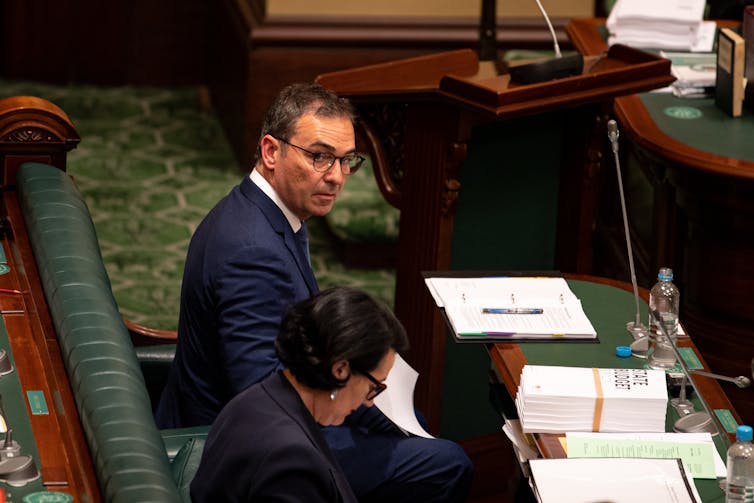
The Liberals look set to defeat one Labor-leaning independent MP in Geoff Brock, who suffered an adverse boundary change and is compelled to contest Deputy Premier Dan van Holst Pellekaan’s safe seat of Stuart. Brock’s former seat of Frome is likely to return to the Liberal camp. If that happens, the Liberals are one short of a majority.
So we come to the intrigue of how the independents may act, and here we look to the two most likely to “betray” their Liberal Party roots. Cregan is the most obvious first port of call for Malinauskas, given his cosy relationship with Labor that saw him become Speaker. Labor recently promised to build a new hospital in his electorate, something the Liberals have not yet matched. The other is Troy Bell, in Mt.Gambier and here it is reported that Malinauskas has regularly visited the electorate, but who knows what deal he may offer Bell or what Marshall’s counter might be.
If Duluk wins Waite – and, among the independents, he is the least likely to prevail – he is more likely to back Marshall into government.
With these factors in mind, more evidence leans to a Labor win. But I am not advising a wager, as this election is harder to predict than usual.
Haydon Manning does not work for, consult, own shares in or receive funding from any company or organisation that would benefit from this article, and has disclosed no relevant affiliations beyond their academic appointment.
This article was originally published on The Conversation. Read the original article.




